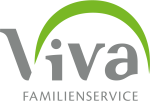Tips for relatives of people with dementia
More and more people are suffering from dementia. Currently, there are around 1.7 million people affected in Germany, and around 40,000 more are diagnosed every year. The diagnosis does not only affect the ill ones themselves, but also poses a challenge for the relatives.
Dementia, as translated from Latin, means “absent from the mind” or “without mind”. It describes the essential characteristic of dementia: the deterioration to the point of loss of mental abilities.
Do you suspect that your relative might suffer from dementia?
Slight concentration or memory disorders are part of the daily life. But if the memory disfunctions become more severe and there is a change of behavior, these are possible signs of dementia. The following afflictions can point to dementia:
- Forgetfulness about recent events
- Difficulties of managing familiar tasks
- Impaired speech
- Weakening interest for work, hobbies or social interaction
- Difficulties to find the way in an unknown environment
- No overview regarding financial matters
- Misjudgement of dangers
- Unknown mood swings, ongoing anxiety, irritability, and mistrust
- Stubborn denial of mistakes, errors or mix-ups
The general practitioner can help to get a diagnosis. If there are indications which suspect dementia, a specialist for neurology or psychiatry should be consulted.
There is still no therapy which leads to full recovery for the majority of dementia illnesses. For that reason the main goal of therapy lies within improving the quality of life of the ill ones and their relatives.
How can you take care of yourself?
Around 80% of dementia patients are being taken care of at home by their relatives. This means a great challenge for the caring relatives, psychologically, physically and financially. This can lead to overburdening. As a caring relative it is important to take care of oneself:
- Self-care: caring relatives often go way beyond the limit of capacity. It is important to keep an eye on yourself and to be mindful of your own needs. Keep on living your own life and take care of your social life. Perceive warning signals from your body and stay in touch with your general practitioner.
- Relative & support groups: in nearly every city there are support groups for relatives. These groups provide the opportunity to get to talk to people who are in the same situation, to exchange fears and worries and to supply support and tips.
Tip: There are also virtual support groups within the app “in.kontakt”. There you can find information, exchange of experiences and support offers. The app is for free and a project by the association “wir pflegen e.V.”.
- Counseling services: If you have any questions or would like advice, you can use the nationwide Alzheimer’s telephone: 030 – 259 37 95 14.
(Monday through Thursday from 9:00 a.m. to 6:00 p.m., Friday from 9:00 a.m. to 3:00 p.m.)
What kind of relief offers are existing?
No one should be solely responsible for taking care of a dementia patient. It’s also in the interest of the ill person that the caregiver manages its own resources. Therefore, it is advisable to look for help and support right away. A lot of services are at least partially financed by long-term care insurance (“Pflegeversicherung”) especially if a care degree has been allocated by the “Pflegeversicherung”:
- Outpatient care services: The care services act as domestic aids (help within the household and basic nursing) as well as treatment care (administering of medicaments or injections or taking care of wounds). The care services employ professionals which are additionally qualified for the care of dementia patients. The costs are usually paid by the health insurances, sometimes a copayment can be required.
- Specialized care institutions: in specialized care institutions for dementia patients the patients and their relatives are individually supported. In contrary to conventional care institutions, the staff is specifically qualified and able to provide the necessary amount of care and support.
- Care groups: For some hours per day on one or two days a week, the dementia patients get cared for and occupied in groups. Providers are Alzheimer-associations in the region and different welfare organizations.
- Day care: The dementia patients are usually being taken care of at home, but partly also at daytime in a care institution (which is called semi-residential care). The number of days, the patient gets visited by the day care, are appointed by the patients and their relatives. The costs are beard by the benefits of the long-term care insurance (“Pflegeversicherung”), the social welfare office or by self-participation.
- Short-term and vacation care: for up to 28 days a year, the dementia patient can be housed in inpatient care institutions. Many institutions are specialized in patients with dementia and offer a fitting care and activity program. The short-term care is a service of the long-term care insurances (“Pflegeversicherung”).
- Assisted vacation for people with dementia and their relatives: for many caring relatives it is no option to leave the dementia patient with outside help. There are more and more vacation offers for dementia patients and their relatives: within these offers living and care services are combined. Information to specific locations are offered for example by the Deutsche Alzheimer Gesellschaft.
- Care classes: caring relatives have the opportunity to get trained in special and free care classes. The classes include practical care, self-care, law and social matters and hygiene. The class can help to decide if you feel capable of caring for your relative. Furthermore, there are special classes regarding dementia. The classes are being provided by the long-term care insurances (“Pflegeversicherung”) or other local institutions (e.g.welfare centers or community colleges).
More information and further links:
- Wegweiser-Demenz.de by the Federal Ministry for Family Affairs, Senior Citizens, Women and Youths provide several information, movies, and useful addresses
- Deutsche Alzheimer Gesellschaft e.V. provides information regarding the disease pattern, different counselling offers and regional Alzheimer associations and counselling and contact points.
The Federal Ministry of Health published a guide on dementia (Ratgeber Demenz) with information on domiciliary care for people with dementia














